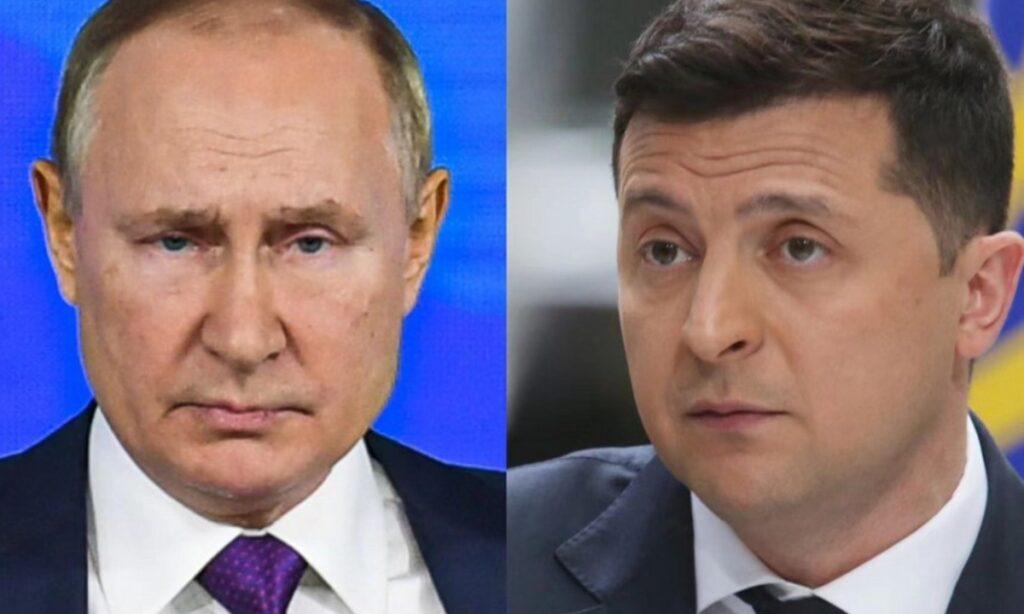Peace between Russia and Ukraine should be achieved by the push for peace talks with the help of the international community. What is more important is that both Moscow and Kiev need to show a peaceful gesture and sincerity in realizing peace. But judging from the current situation, the two sides lack a consensus about peace, which dims the hope for a cease-fire.
Ukrainian Foreign Minister Dmytro Kuleba said in an interview with the Associated Press on Monday that his government aims to hold a peace summit by the end of February – exactly one year into the Russia-Ukraine conflict. According to Kuleba, the event is preferable to be held at the United Nations (UN) with Secretary-General António Guterres as the mediator.
But such a summit is unlikely to happen, let alone genuinely promote a cease-fire between Russia and Ukraine. Zhang Hong, an associate research fellow at the Institute of Russian, Eastern European and Central Asian Studies of the Chinese Academy of Social Sciences, told the Global Times that one of the main reasons they cannot solve the crisis is that the two sides’ understanding of peace is far apart – Russia wants a peace that maintains the status quo, while Ukraine wants a peace that restores the status quo, namely the pre-war pattern.
In addition, Kuleba said on Monday that Russia must face a war-crimes tribunal before any direct peace talks with Moscow. Experts believe this is a very unrealistic idea from Ukraine, because there is no way that Russia would accept such a condition. The Russian side has already made it clear that a precondition for peace talks requiring Russia to withdraw from Ukraine is “unacceptable.”
A meeting that promotes peace between the two sides at war must include all parties involved, be it the US, Russia or Ukraine. It is evident that the peace summit proposed by Ukraine will end up being a meeting without Russia’s participation. Losing its significance of seeking to put an end to the war, such an event will end up as a public trial against Russia in the international arena that can build the momentum of further denunciation and isolation of Moscow.
The Ukrainian side has been hoping to pressure Russia from the perspective of global diplomacy since the beginning of the Russia-Ukraine conflict. But the false hope the West has been giving to Kiev may only aggravate the political tensions and accumulate hatred between the two sides at war.
Ukrainian President Volodymyr Zelensky’s US trip proves that Ukraine will continue to receive support from the West, especially from the US. The promises Washington made during Zelensky’s visit are also an effective pick-me-up to Kiev. As a result, Ukraine is now confident to intensify its moves against Russia. This includes Kuleba’s call for Russia to be removed as a permanent member of the UN Security Council.
Kuleba also said during the Monday interview that Ukraine will do whatever it can to win the war in 2023. This is almost impossible, in Zhang’s opinion. After all, Russia is still a strong military power, and the West’s limited support for Ukraine can only maintain the latter’s current position on the battlefield rather than help it win the war.
The US is making all efforts to cheer Ukraine on so it can continue its conflict with Russia. Washington hopes to use the war to completely crash Moscow, including making the latter lose its moral position within the international community.
Diplomacy is still the most rational and realistic option to achieve peace between Russia and Ukraine. Right now, the key lies in the hands of the West, especially the US. Western countries should help cool down the situation and promote rationality instead of fanning the flames and putting Ukraine in a castle in the air.
At the 2023 Global Times Annual Conference held on December17, several scholars agreed that the West should play a more constructive role in pushing for a peaceful resolution of the Ukraine crisis.
Wang Yiwei, director of the Institute of International Affairs at the Renmin University of China, argues that the US needs such a conflict, in addition to coercing Europe into the arms of Washington, sanctioning Russia, supporting Ukraine, and more importantly, restructuring the global supply chain, which is a relatively long-term process.
“When the Russia-Ukraine conflict ends depends on how far the US reaches in the process of restructuring the global supply chain and industrial chain through the conflict,” he noted.
(Global Times)




